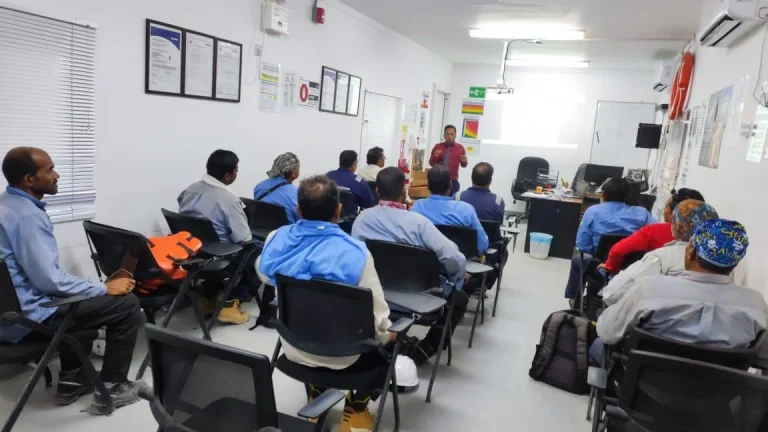7 Principals of HACCP Certification
Understanding HACCP and Its Importance in Food Safety
HACCP (Hazard Analysis and Critical Control Points) is an essential system for managing food safety. This method identifies potential hazards in the food production process and sets up controls to prevent them. Following HACCP guidelines ensures high standards of food and hygiene.
The Importance of HACCP Course
Joining a food safety course that includes HACCP principles is crucial for anyone involved in food handling or production. These courses cover important aspects of food safety, from spotting contamination sources to implementing effective control measures. Training ensures that everyone is equipped with the knowledge to handle food safely and prevent hazards.
Ensuring Food Safety in Saudi Arabia
Maintaining food safety in Saudi Arabia is essential due to the increasing demand for safe and hygienic food products. By keeping the HACCP guidelines, businesses can ensure their products meet regulatory standards and protect consumer health. This not only prevents foodborne illnesses but also builds customer trust
Comprehensive Food Safety and Hygiene Training
For those looking to enhance their knowledge and skills, a comprehensive food safety and hygiene course is invaluable. These courses provide detailed training on HACCP principles, ensuring a safe food supply chain. This training is vital for maintaining a consistent standard of food across all stages of food production and distribution.
Implementing HACCP
Implementing HACCP in your operations not only ensures food safety in Saudi Arabia but also boosts customer confidence and compliance with international standards. Proper training and adherence to HACCP guidelines significantly reduce the risk of foodborne illnesses, ensuring safer food for everyone.
7 Principals of Haccp
Food safety can be achieved successfully after you implement the essential principles of HACCP. These are as follows.


Cost-Effective HACCP Certification in Saudi Arabia
The International HACCP Association offers HACCP certification. Its primary purpose is to educate people about food management. Everyone who loves to interact with food can learn this course. We also certified supervisors, managers, operators, and persons related to food products, distribution, and storage. Thus, this course benefits each person in the surrounding environment related to food.
We have provided these courses in Saudi Arabia for the past 10 years. Our clients range from sole owner-operator facilities to multi-billion dollar food groups, and these are our permanent clients. We provide them with both on-site and off-site training. Likewise, we can train you and your entire staff. Our choice will be better, cheaper, and more effective than any other HACCP training solution.
These courses allow our trainees to create HACCP plans legally, make teams, create HACCP documentation, verify records, sign monitoring, and complete checklists and forms quickly.
Training Features
We have provided the online HACCP courses and certifications brands authorize. Our methods are simple and easy to use according to the accreditation criteria. Plus, our course fee is affordable for all individuals.
List of HACCP Course Topics
What is the Importance of HACCP?
If you work in a food company, you will understand how important food safety is, and customer satisfaction is even more critical. It lets us know we’re doing everything right with food and allows a company to design ways to prevent food hazards from occurring. Customer satisfaction also affects the profitability of any business because the more the customer is satisfied with your delivery, the more you will grow.
Sometimes, this training is necessary when you apply for a manager’s post in restaurants and supermarkets dealing with products such as juice, meat, or seafood. In their job description, you must have critical training information on risk analysis and control.

How to get the HACCP certification
Complete Training Courses:
If you want to get a certificate for any course, you have to take the training of that course first because this is a fundamental principle. How will you be able to do any job well if you don’t take training? In this safety training, you are taught how to keep foods safe, protect them from various hazards that can spoil food, and how to encounter them. If we examine these threats, how can they be dealt with, and how can they be prevented?
The course is divided into three HACCP levels. The first one contains information on food manufacturing processes and food management procedures. In the second level, we learn safety understanding and implementation of the HACCP system. In the last one, we create the development plans to control the risks of food and implement the system.
Prepare for a HACCP Food Safety Audit
You must take an audit report to start your work in this step. You can use an external auditor to select the personnel best fit for your process. To take an audit, you need to submit the required documentation to the auditor so that the auditor can check the team’s documentation and request more information if required.
Complete the First Part of the Audit
HACCP audits contain two parts. In the first part of the audit, the auditor checks and confirms the company’s documentation and team in the first part. Before evaluating the safety system, the team’s willingness and management principles must be assessed. After that, they compare the business standard to HACCP Saudia Arabia criteria to determine fields of conformity and non-conformity in your report, which leads to the second part of the audit process.
Finish the Second Part of the Audit
The second part involves a surveillance audit lasting around two years, ensuring ongoing compliance with the HACCP plan. Unlike the initial audit, this surveillance focuses on maintaining changes requested previously.
Conclusion
Staff development training center provide HACCP training course online .HACCP is an excellent system for educating people about food safety. Because food affects our health, we should eat safe food and care for others. You should take this course if you work or want to work in a food-related field, such as restaurants and supermarkets that sell goods like meat, juice, or seafood.







